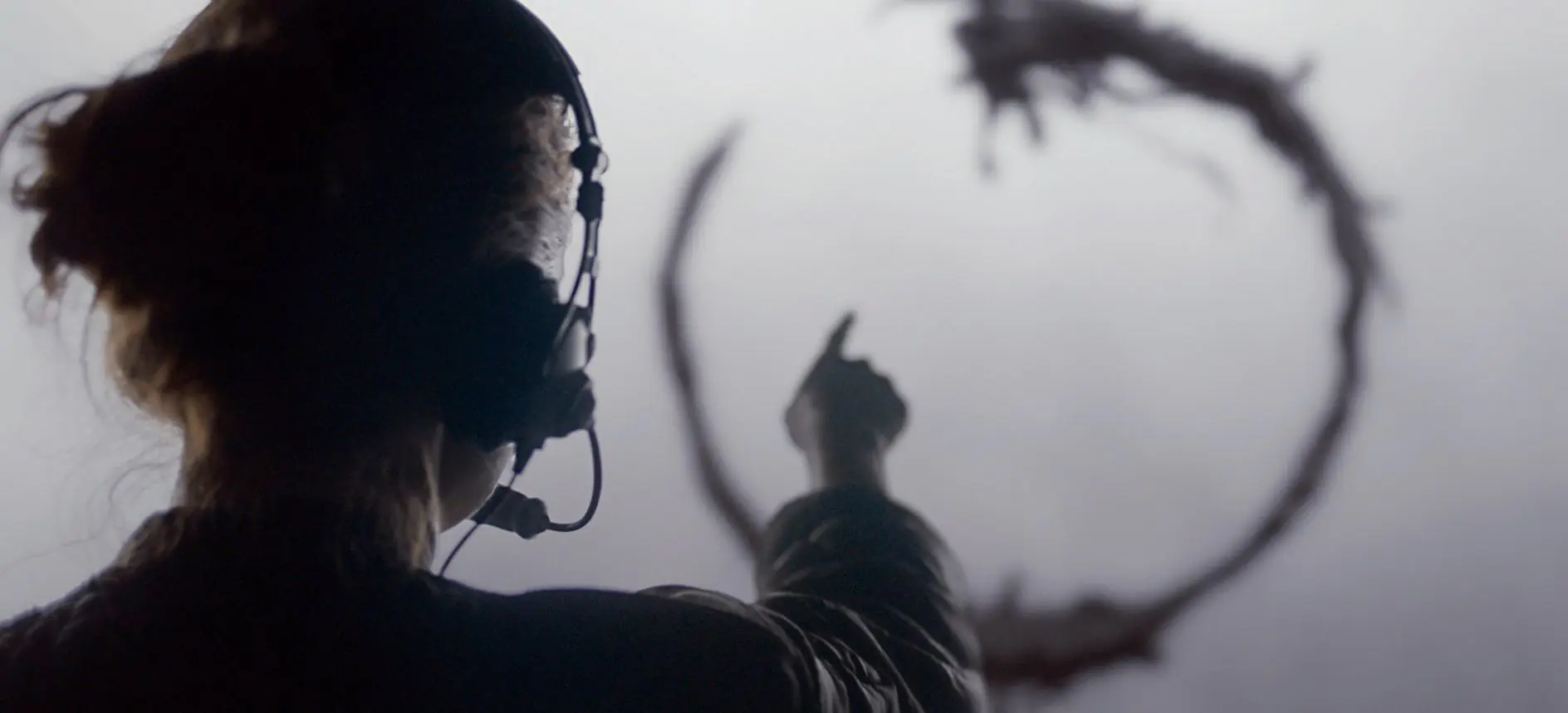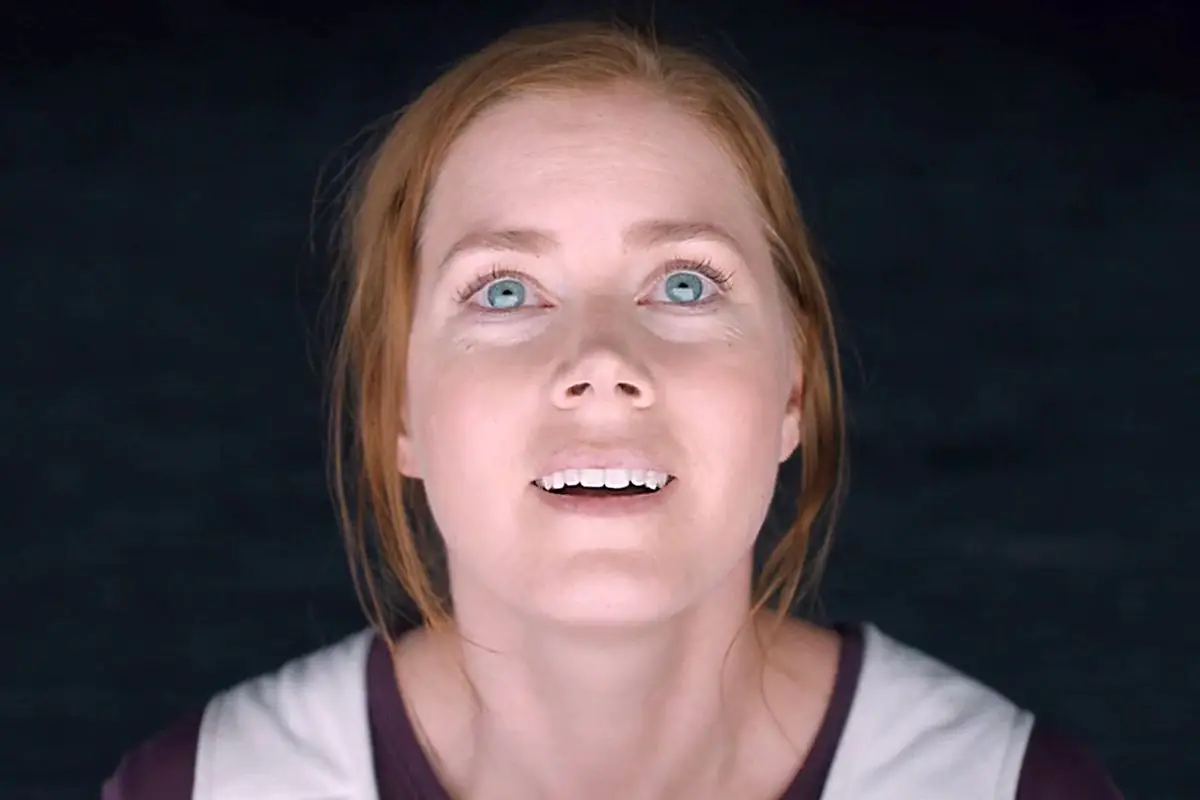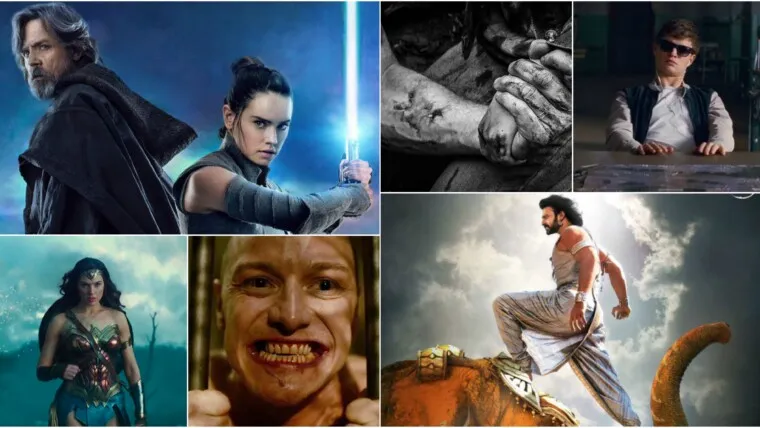This is a SPOILER-FILLED article.
Just like Villeneuve’s 2013 film, Enemy, Arrival is a movie that does not spoon feed you any of its answers. And I love that. After watching this movie, I went home, slept on it and allowed it to marinate at the back of my head. When I woke up, I started scribbling notes on a dusty old envelope I found on my floor (for whatever reason, I do not own a notebook). A couple of days later, I watched the movie again. Then, I convinced anyone who would listen, to watch the movie. And then, I watched the movie for the third time. This movie is f**king phenomenal, I tell ya.
So, let’s not waste any more time and get cracking, shall we?
Louise DOES NOT have superpowers.
As Dr. Louise Banks (Amy Adams) starts learning the Heptapod language, she slowly begins to get visions of the “future.” The first couple of things that probably come to mind is:
- Louise has superpowers / received superpowers from the Heptapods.
- Louise is the chosen one.

I’m not going to outright rubbish those notions. This movie is after all, open to interpretation. Having said that, I personally disagree with both number one and two.
Louise did not receive superpowers from the Heptapods, and unlike Neo from the Matrix, she isn’t the “chosen one.” On the contrary, ANYONE who masters the Heptapod language, will change their perception of time and be able to see the “future.” Now, you might think that it’s absolutely ludicrous and illogical for a person to be able to see the future just by learning a language. I mean c’mon! What is this? A comic book movie? Maybe it is a little crazy. It is Science-FICTION, after all. But, believe it or not, there’s an actual logical explanation for this.
In a voiceover at the start of the film, Amy Adams’ character, Dr. Louise Banks says:
“We are so bound by time. By its order.”
This is the first and perhaps, most important key to understanding the movie. What does this sentence mean? And, how is it significant to the movie? For that, we must first understand the concept of TIME. Huw Price, a philosophy professor at Cambridge University once said,
That science-y gibberish basically means that time isn’t necessarily an actual physical thing, but rather just a man-made concept. A car is an actual physical thing. A water bottle is an actual physical thing. Your grandma’s smelly dentures is an actual physical thing. Time, is not.
To us, time is linear. It moves in a straight line.

You see, that one-directional idea of time, isn’t necessarily REAL, but rather, our REALITY. It is a subjective reality that we, as agents of this environment AKA humans, collectively agree upon. And this reality is influenced by the language we speak which then influences our culture as a whole.
This crazy shit is called:
Sapir-Whorf hypothesis.

This notion is brought up once in the movie, by Ian Donnelly (Jeremy Renner).
Ian Donnelly: You know, I was doing some reading about this idea, that if you immerse yourself into a foreign language, that you can actually rewire your brain.
Louise: Yeah. Sapir-Whorf hypothesis.
Again, although the entire movie takes place in a fictional world, this is very much a real-world concept. Sapir-Whorf hypothesis – a theory coined by Edward Sapir and Benjamin Lee Whorf – states that language influences an individual’s mode of thought, as well as the behaviour of the culture in which it’s spoken.
The languages we speak – English, Bahasa Malaysia, Mandarin, Tamil, Spanish, Russian, etc. – determine our mode of thought, which causes us to see time in a straight line. The Heptapod language in Arrival is completely different, and thus their mode of thought is very much different from ours.
In contrast to us, these Heptapods view time in a non-linear form. Instead of a one-directional straight line, it is more or less a circle (or a loop), whereby the start or end is unclear.
Keeping with the logic of Sapir-Whorf hypothesis, it is entirely plausible for EVERYONE, not just Louise, to be able to change their perception of time, by learning the Heptapod language.
I’m not sure if you noticed. Throughout the article, I’ve placed the word FUTURE, in inverted commas. This is because, even the concept of past, present and future, is merely a reality that we have collectively agreed upon. But, for the purpose of simplification, I will continue to use the terms “past,” “present” and “future.”
The Ending.
Towards the end of the film, the rug is pulled from under our legs. #Plottwistmotherfucker. We learn that what was initially thought to be flashbacks, are actually Louise’s visions of the future. And, these visions help her resolve the conflict that’s happening in the “present.”
When this plot twist happens, our minds start racing. We try to piece the puzzle together. And, we have many questions. “Oh, so it’s actually the future, not the past.” “Wait a minute. If Louise only starts having visions of the future midway through the movie, how come we see her vision at the start of the movie?”
Notice how we immediately try to rearrange the scenes in the movie? Villeneuve presents this film in a non-linear form. Why can’t we just accept that? Our desire to rearrange the sequences of the film in chronological order, highlights something that is said at the very start. “We are so bound by time. By its order.”

Now that we’ve got the TIME aspect of Arrival covered. Let’s look at some of the other things that Arrival teaches us.
When Ian Donnelly and Louise first meet, they have a minor disagreement. Louise believes that:
Language is the foundation of civilization. It is the glue that holds people together. It is the first weapon drawn in a conflict.

Ian Donnelly disagrees. He thinks science is the foundation of civilization. I tend to side with Louise. Maybe because I’m very much an arts and literature guy, myself. Or perhaps it’s because the only thing I ever cared about when I learned science in high school, was ‘reproduction.’
Anyway, through its unfolding events, Arrival constantly highlights the complexities and importance of language.
In one scene, China delivers an ultimatum to the Heptapods. “The aliens have 24 hours to leave Chinese territory, or face destruction.” Language is the first weapon drawn in conflict.
In the second act of the movie, many countries decide not to share their intel with each other, opting for radio silence, instead. Louise isn’t happy with this decision. She thinks that it’s important to constantly communicate with your allies. By the end of the movie, she’s proven to be right.
The conflict against the Heptapods is resolved when Louise makes a phone call to General Shang of China and delivers a message. Something that could not have been achieved through radio silence. And in one of Louise’s visions, we see a gala of sorts, where flags of many countries hang side by side, as a symbol of unity. All this is achieved, because Louise chose to COMMUNICATE.
This isn’t some gobbledygook cooked up by Villeneuve and Heisserer. Why is it that 54 years later, people still remember, quote and preach Martin Luther King Jr.’s I have a Dream speech? Because language is powerful. Language is the glue that holds people together.
When we think of Hitler, we usually think of the Holocaust and the annihilation of six million Jews. But do we ever stop to wonder, how is it that a tiny little fellow, with a horrible fashion sense, rose to such powers in the first place? He didn’t put guns to the heads of every single German and force them to worship him. No. He gained followers through his speeches and propaganda. He used LANGUAGE to manipulate people.
Another aspect of language that Arrival heavily explores is the idea of:
Interpretation and Misinterpretation.

The movie first explores this area with the whole: What is the Sanskrit word for war, and its translation?
One linguist claims that the Sanskrit word for war is “Gavisti,” which means, “an argument.” Louise points out that, that is wrong. The accurate translation would be “a desire for more cow.”
This small exchange of dialogue highlights something very important. A lot of words often get lost in translation or are misinterpreted and this more often than not, can lead to misunderstandings and conflict.
This area is explored a couple more times, with Louise’s fake Kangaroo story and then finally, the misunderstanding with the Heptapods. One of the countries interprets the Heptapods’ message as “offer weapon.” This causes a lot of the world leaders to panic, as they see this as a threat by the Heptapods. But as Louise points out, what if the Heptapods do not know the difference between the word “weapon” and the word “tool?” What if the word “weapon” does not exist in the Heptapods’ vocabulary. It could’ve just been a case of misunderstanding. And as it turns out, it was.
Again, this isn’t just some fictional bullshit. There are in fact, a lot of words from languages around the globe, that do not have a direct English translation.
For instance, the Yagan word, ‘mamihlapinatapei,’ which means the special look shared between two people, when both are wishing that the other would do something that they both want, but neither want to do. Or, what about the Indonesian word, ‘jayus’ which means a joke so poorly told and so unfunny that one cannot help but laugh.
And, what about certain words that have different meanings in different contexts. If you walk into any cyber cafe, you might hear, “Holy shit bro! I don’t think we can win. Our opponents are too damn gay.” Does the word “gay” mean homosexual? No, of course not. Within the gaming bubble, the word “gay” simply means, bloody fucking awesome.

There you have it. My analysis of Denis Villeneuve’s best film till date, Arrival. I’m dead confident, that many years from now, Arrival will be hailed as a masterpiece and ranked among other Sci-Fi classics.
Hey you! Yes you, hot stuff. Like my article? Leave a comment below and let me know what you think. Also, don’t forget to share it with your buds.
And if you’d like to talk to me, you can follow me on Twitter here: @dashtalksmovies







